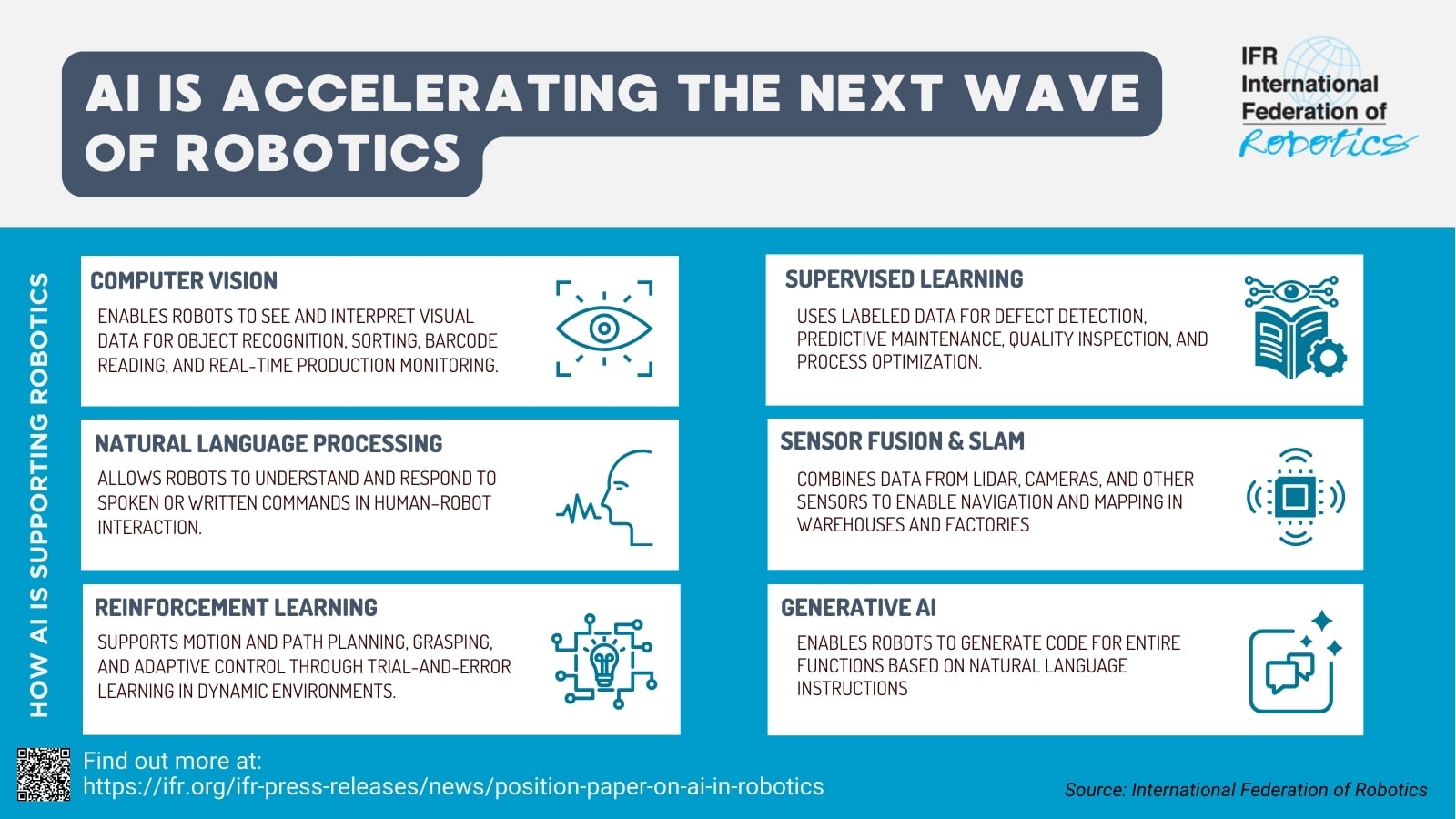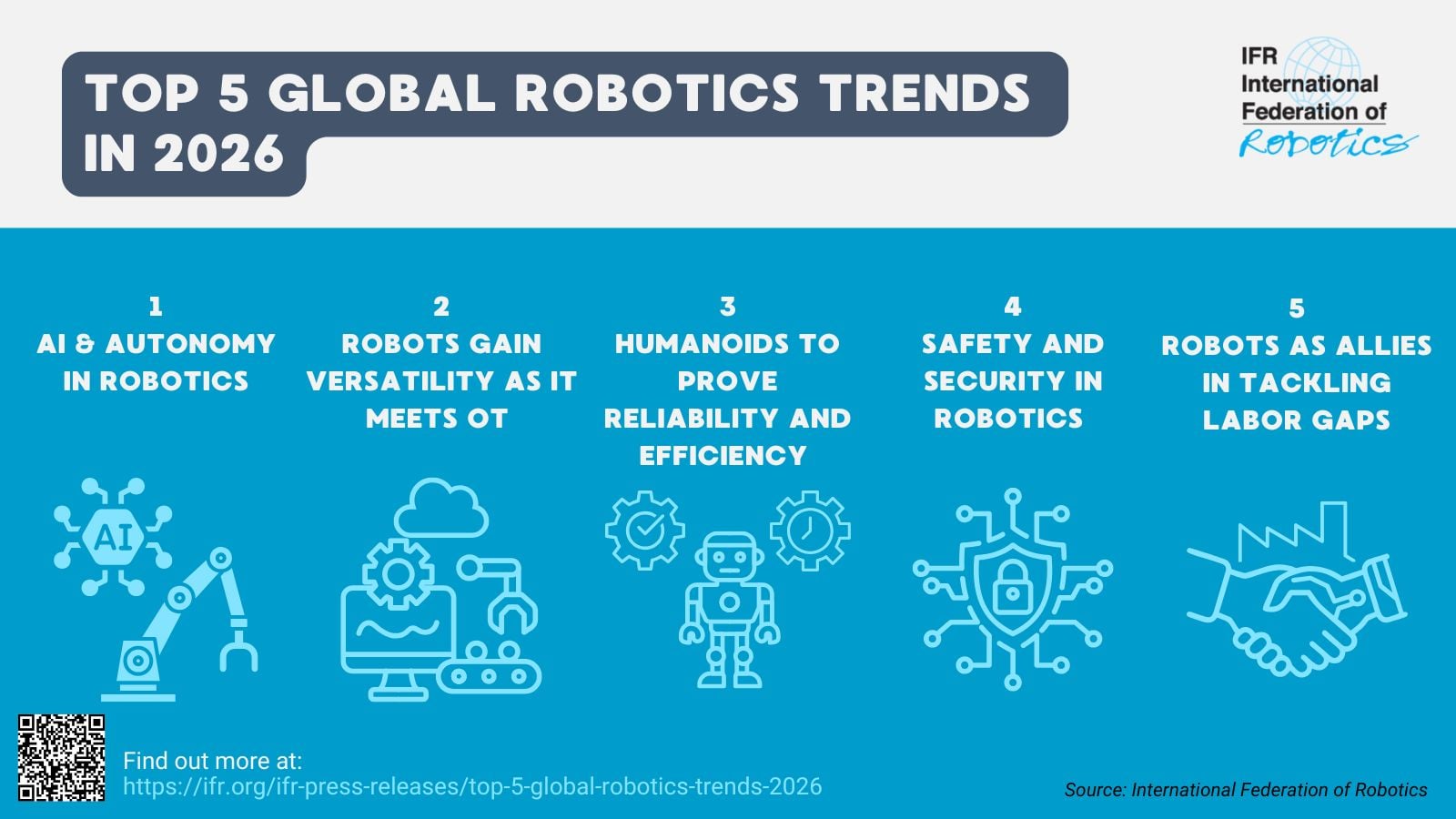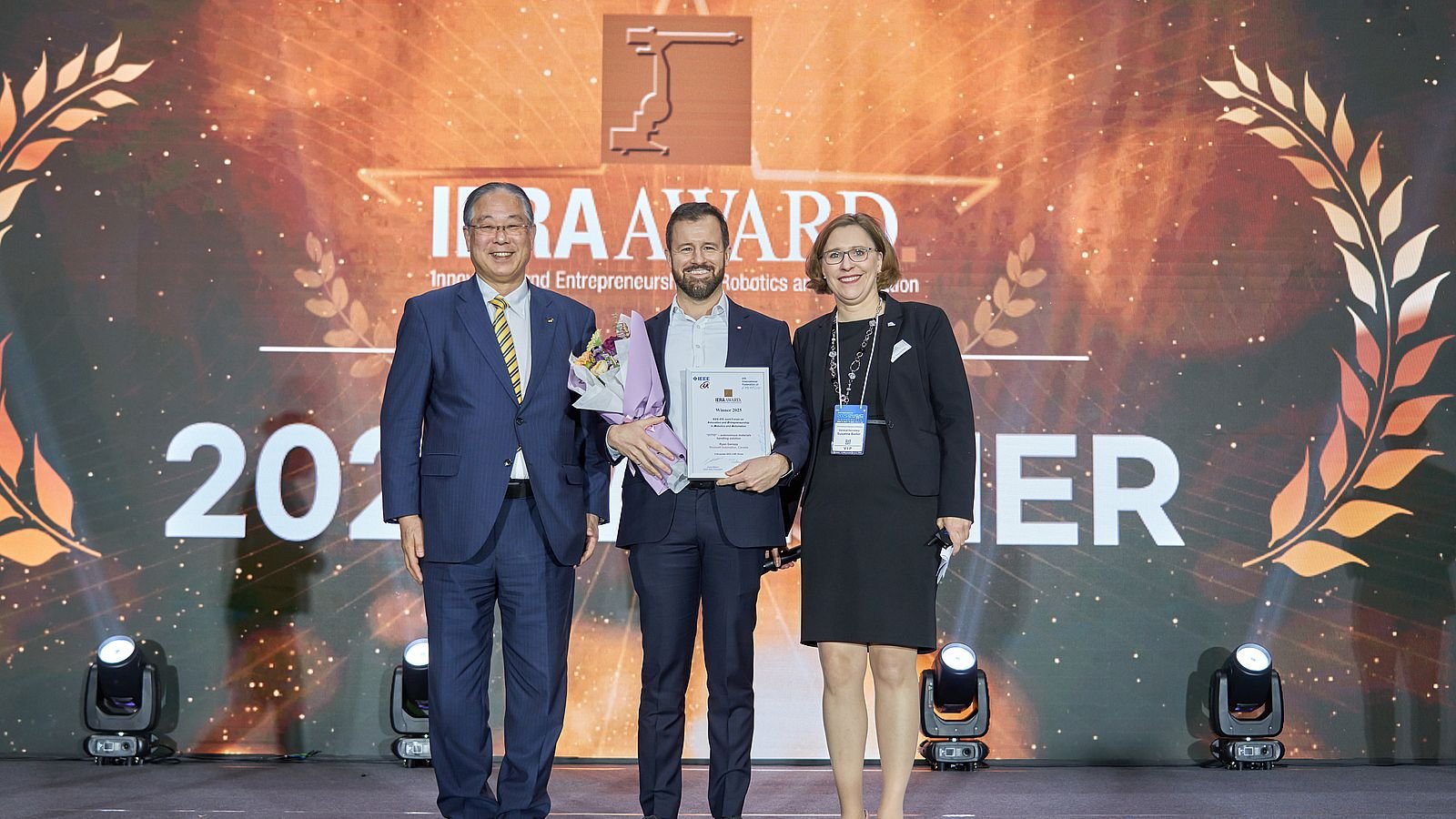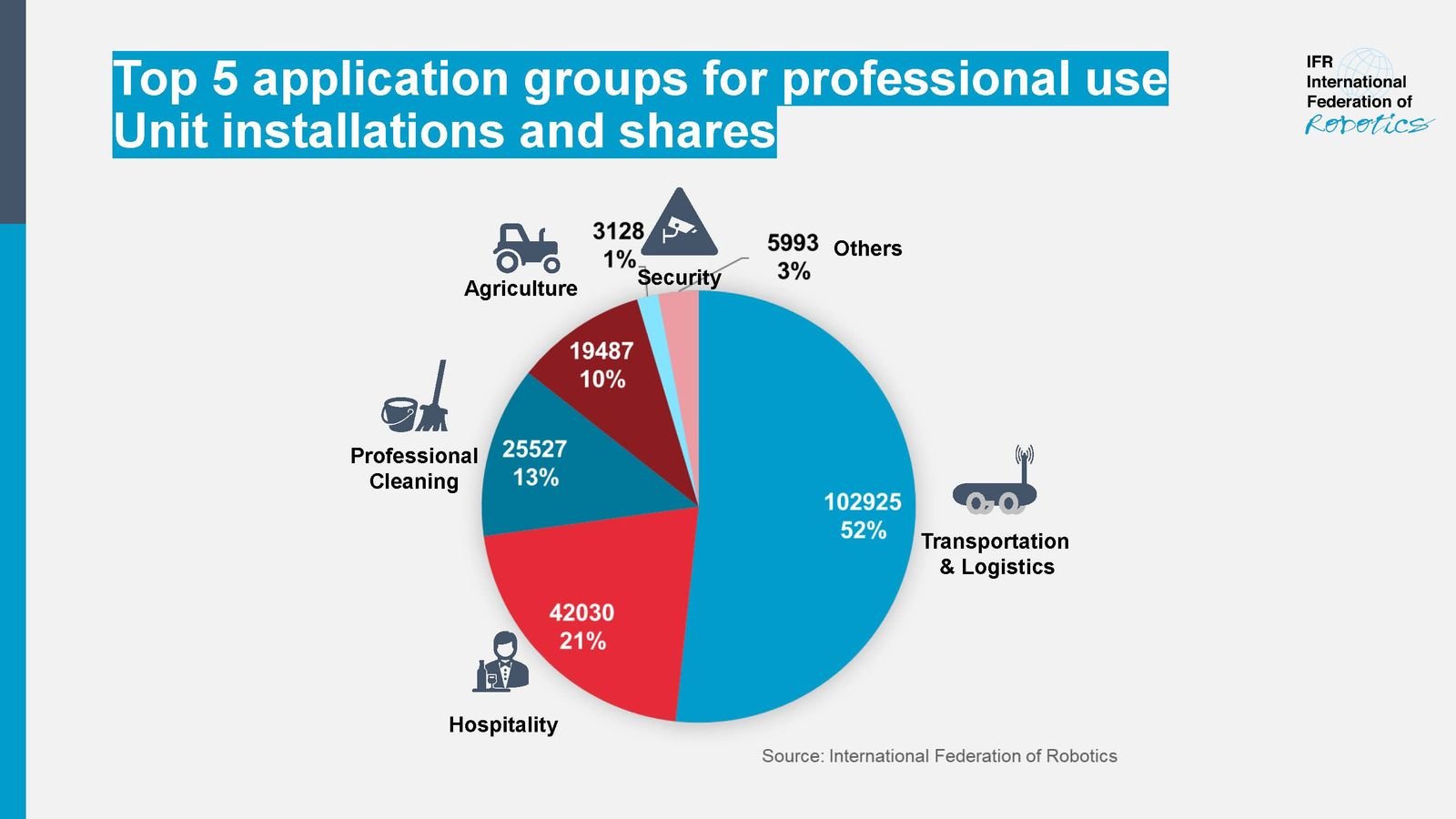
Robots Help to Solve “Japan’s 2024 Problem”
Robots speed up warehousing
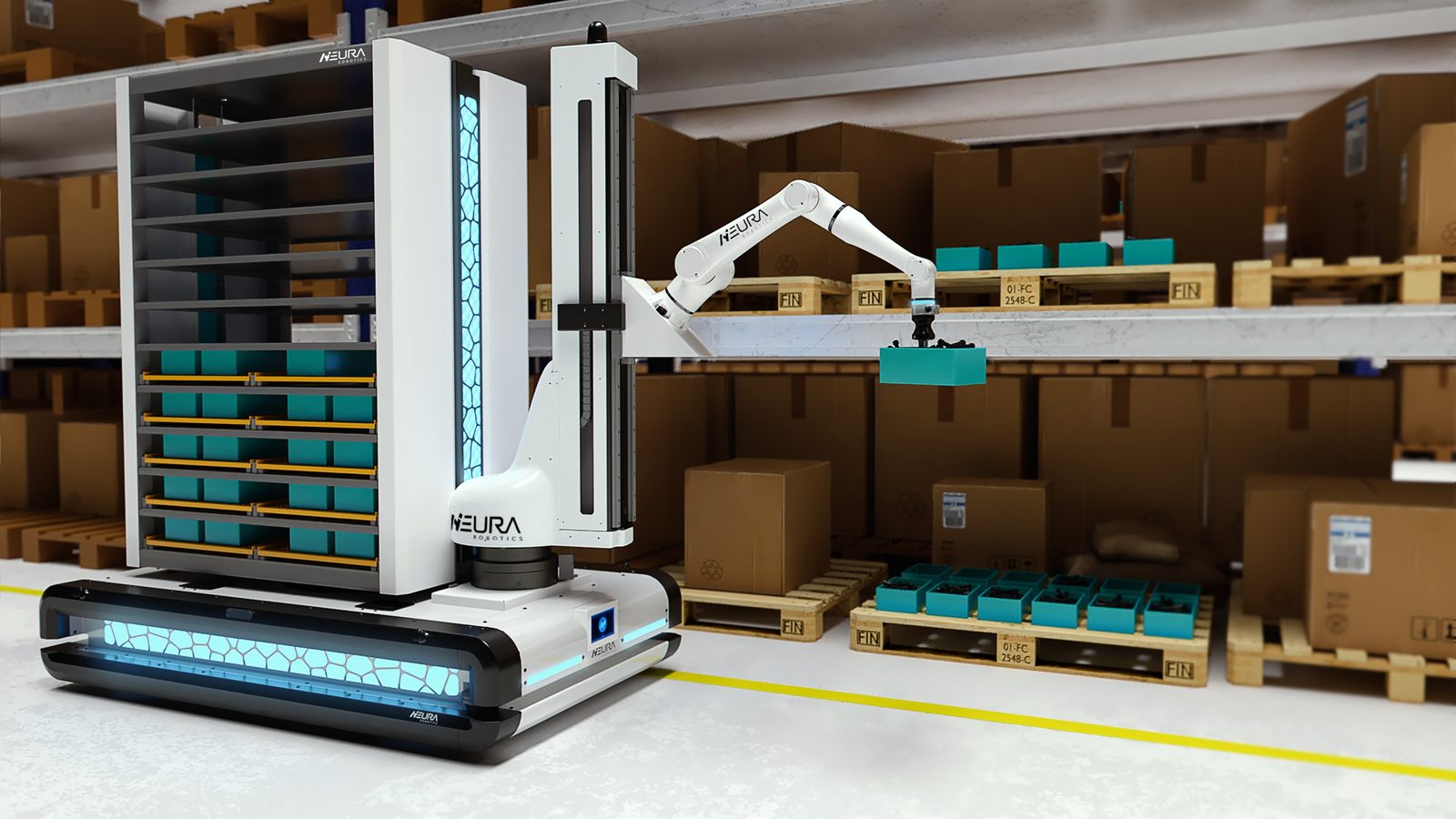
LARA (Lightweight Agile robotic assistant) mounted on MAV (Multi-Sensing Autonomous vehicle) palletizing products © NEURA Robotics GmbH
“The government´s overtime cap is an important step to improve working conditions for employees,” says Takayuki Ito, Vice President of the International Federation of Robotics. “Industrial and service robots deliver great solutions to automate. Robots relieve workers of dirty, dull and dangerous work and help to close productivity gaps.”
Robots load and unload cargo
In Japan, the average annual working hours for a heavy truck driver were 2,568, which is 444 hours longer than the national average for all jobs - labor ministry data from 2022 reveal. Placing cargo in and out of trucks and warehouses is one of the most time- consuming tasks of truck drivers. Mobile robot solutions in transportation and logistics can help. To free up truck drivers from loading and unloading cargo saves them up to 25% of working time during a day´s shift. Robots also help reduce errors in order fulfillment by automating repetitive tasks such as picking and packing.
Robots speed up warehousing
Warehouse robots in use today range from compact autonomous mobile robots to large-scale automated storage and retrieval systems. Their use reduces the amount of time required to move goods and they can handle heavy loads and dangerous materials without putting human workers at risk.
Professional service robots are booming
The benefits of robots for transportation and logistics are documented by latest statistics: on a global scale, more professional service robots were built for the transportation of goods or cargo than for any other function. Sales grew by 44% with more than 86,000 units sold in 2022 worldwide, IFR reports.
Workplaces of the future
“Regulations of overtime work and the demographic change will require the adoption of automation technology in many branches of the Japanese economy,” says Takayuki Ito. “The challenges of the trucking industry are good examples to show how robotics and automation deliver adequate solutions for our workplaces of the future.”
iREX 2023 in Tokyo (November 29 – December 02)
The International Robot Exhibition (iREX) in Tokyo is highly regarded both in Japan and abroad as one of the largest robot exhibitions in the world:
• iREX homepage
• iREX online webinars
Video
FACTS about Robots – the Global Automation Race in Numbers
Press contact
PRESS OFFICER
International Federation of Robotics
Carsten Heer
phone +49 (0) 40 822 44 284
E-Mail: [email protected]
Downloads
Please find photo and press release in German and Japanese for download below.
